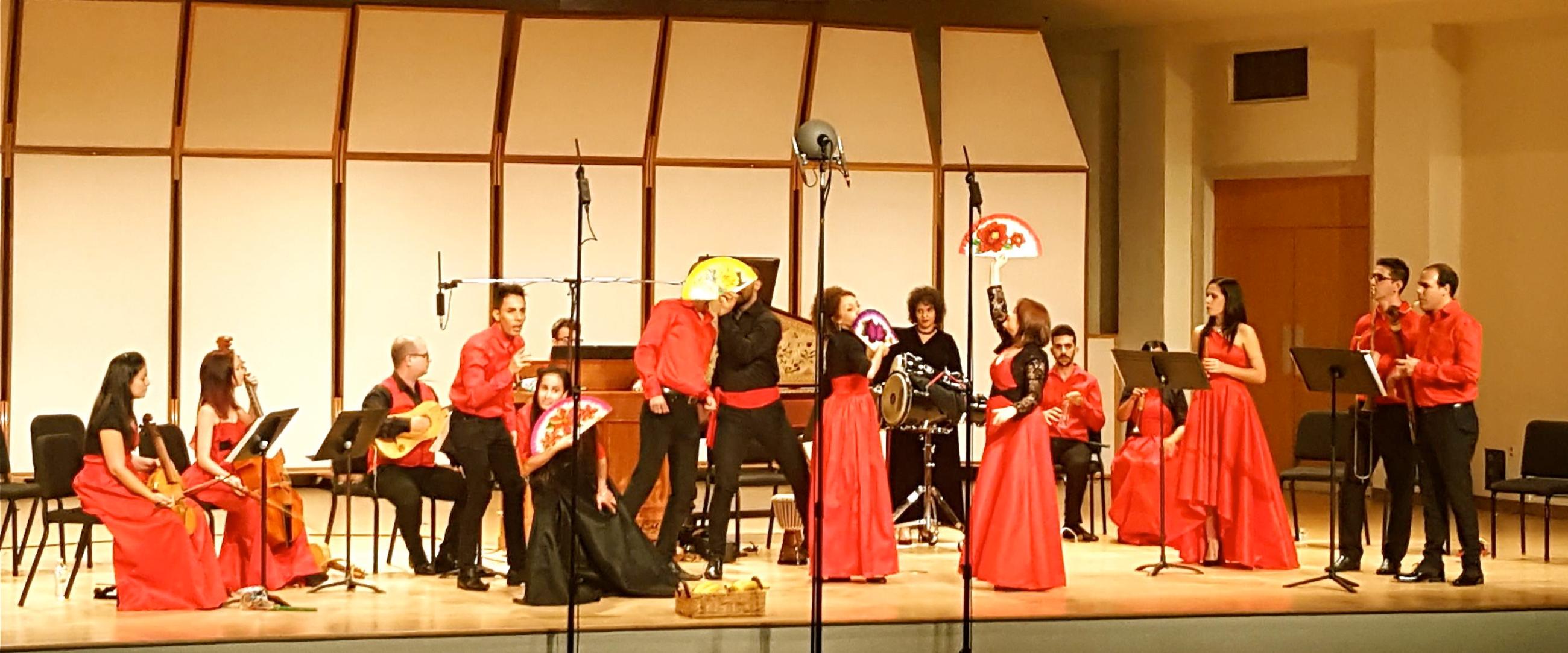
Cuban ensemble Ars Longa mines rich cultural legacy in Miami debut
Preceded by well-earned prestige in Europe and Latin America, the Cuban group Ars Longa recently made its Miami debut. The concert was the last stop in the group’s first U.S. tour. The Baroque music ensemble, fresh from appearances in Milwaukee and New York, performed at Florida International University’s Wertheim Hall thanks to the efforts of the university and, especially, the Miami Bach Society, which has been sponsoring the annual Tropical Baroque Festival for almost two decades.
Bringing Ars Longa to Miami proved a worthy undertaking. The early-music group–founded in 1994 by its current director, Teresa Paz, and Aland López–delivered an impeccable performance of original material that felt incredibly fresh for this part of the world, as well as uncovering seldom-heard treasures from a cultural legacy that merits further exploration.
The meeting of Baroque and the Caribbean’s African heritage coincided with the Spanish Golden Age. The result was a fascinating, kaleidoscopic amalgam–one from which Ars Longa draws to illustrate a historic moment, becoming, in the process, a major exponent of it.
Facets of this rich (if troubling) colonial legacy were on display in the program titled “Gulumbá Gulumbé: Resonances of Africa in the New World,” which included Christmas carols composed by Spanish and Portuguese musicians, inspired by the music of the area’s African slaves. Santiago de Murcia, Gaspar Fernández, Sebastián Durón, Antonio de Saldivar and Felipe de la Madre de Dios were only some of the composers represented in a performance that included poems by Juana Inés de la Cruz and Luis Gargallo. The show, during which members of the audience were invited to dance, brought the historical period to life in a simple yet effective way.
The 16-member ensemble–equipped with a viola da gamba, sackbut, bassoon, Baroque guitar and organ, plus recorders, hornpipes, maracas and other instruments, and featuring two sopranos, a mezzo, a countertenor, a tenor and a baritone–achieved a lighthearted performance marked by suggestions of salsa and mambo. Caribbean colors prevailed, sprinkling an island flavor on the harmonious celebration of life and freedom, which was rich in dialects and vernacular rhythms. With distant echoes of Bach and Domenico Scarlatti, Christmas carols with lively refrains and folk tunes betrayed the influence of European cantatas and motets.
Ars Longa found an admirable balance between elegance and ease. Only the vastness of the hall, in which at times the voices failed to project sufficiently, detracted from the final product. Had it been conducted in a more intimate setting, the concert would have been perfect. May it be so next time, and may that time come soon.
Sebastian Spreng is a visual artist and freelance arts writer. Email him at [email protected] and follow him on Twitter @sebastianspreng.
Recent Content
-
Artsarticle ·
-
Artsarticle ·
-
Artsarticle ·

